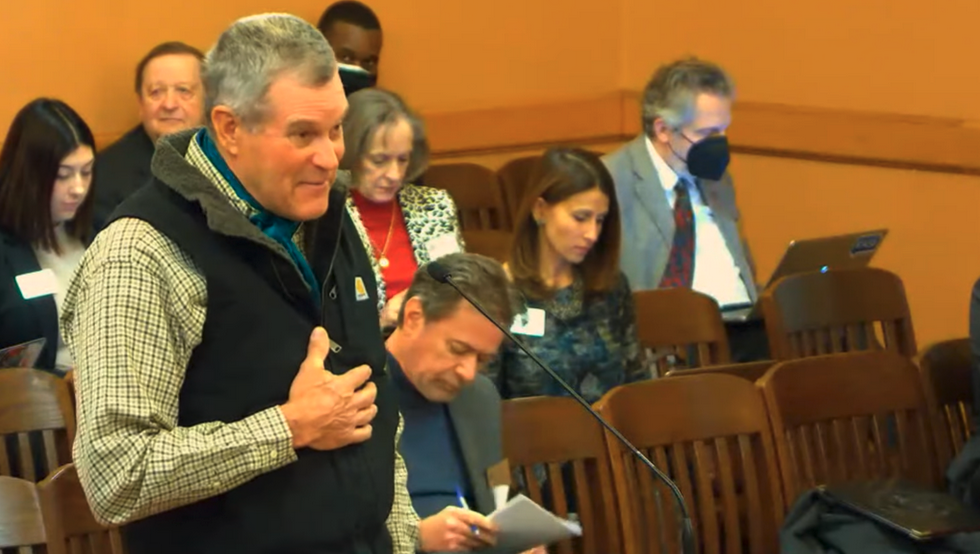
By NOAH TABORDA
Kansas Reflector
TOPEKA — Dec. 15, 2021, was just another day for Chris Pelton, a rancher living in Paradise, but in a matter of hours a ravenous wildfire flipped his life, home and livelihood upside down.
Pelton, who also serves as a volunteer firefighter, said he smelled smoke about lunchtime that day. Despite his best efforts to protect his home by flooding his lawn, by the time he and his wife returned at 6 a.m. the next morning, the house and ranch were gone, and a third of their cattle were dead.
But life remained and provided Pelton with hope. The ranch dog, Archie had survived, huddled in the seat of an all-terrain vehicle. Now, Pelton is pleading with legislators to provide hope and financial relief to ranchers affected by the wildfires in north-central Kansas.
“Ranchers are a breed of people who are there to help others but hate asking for help themselves. I am one of those people,” Peloton said. “Today, I stand before you broken, everything I have worked for burned by flames, but humbled knowing that I have to ask for help. Kansas ranchers are strong, but we need your help.”
A bill approved Thursday by the Senate Assessment and Taxation Committee would provide relief through a tax exemption on any equipment purchased after Jan. 1 used to repair or replace any fencing destroyed by the wildfire. The land must be agricultural in nature.
In a House hearing on a similar bill, the Department of Revenue reported the December wildfires burned more than 160,000 acres across 12 counties. That would equate to about 1,600 miles of fencing needing replacement.
According to department estimates, the state would not receive about $1.4 million if legislators approve the exemption.
Sen. Elaine Bowers, a Concordia Republican who worked on the bill, said the measure was nearly identical to a bill passed in 2017 in the wake of the Starbuck Fire. However, this piece of legislation would seek to create a more permanent aid mechanism without legislative re-authorization.
“Our main purpose was not to have this expire, so we could just pick up with the next firestorm, because it is not an if but a when,” Bowers said.
The committee added an amendment that would allow the owner of an agricultural or commercial building in an area where the governor has declared a disaster to apply to county commissioners for a one-year property tax abatement. Sen. Caryn Tyson, chairwoman of the Senate Assessment and Taxation, said similar measures have passed the Senate with minimal opposition in past years.
“Currently, (county commissioners) only have an option to exempt homes during an emergency or natural disaster,” the Parker Republican said. “This amendment would expand the bill to allow current, existing language where they can exempt the home, but they can also have the option of exempting any agriculture or commercial buildings from property tax.”
Some senators expressed concern the property tax measure could affect school financing through the 20-mill property tax levy.
There was no testimony opposing the bill. The House Taxation Committee plans to work and vote on the bill next week.
“The cost of replacing fences is not covered by insurance, and this unexpected expense can be difficult for farmers and ranchers to assume when fencing costs can reach well over $10,000 per mile,” said Richard Felts, president of the Kansas Farm Bureau. “This bill is drafted in a manner to help others affected by similar disasters in the future, which is good public policy and will allow those affected by these types of natural disasters to know that this tax relief is available.”






